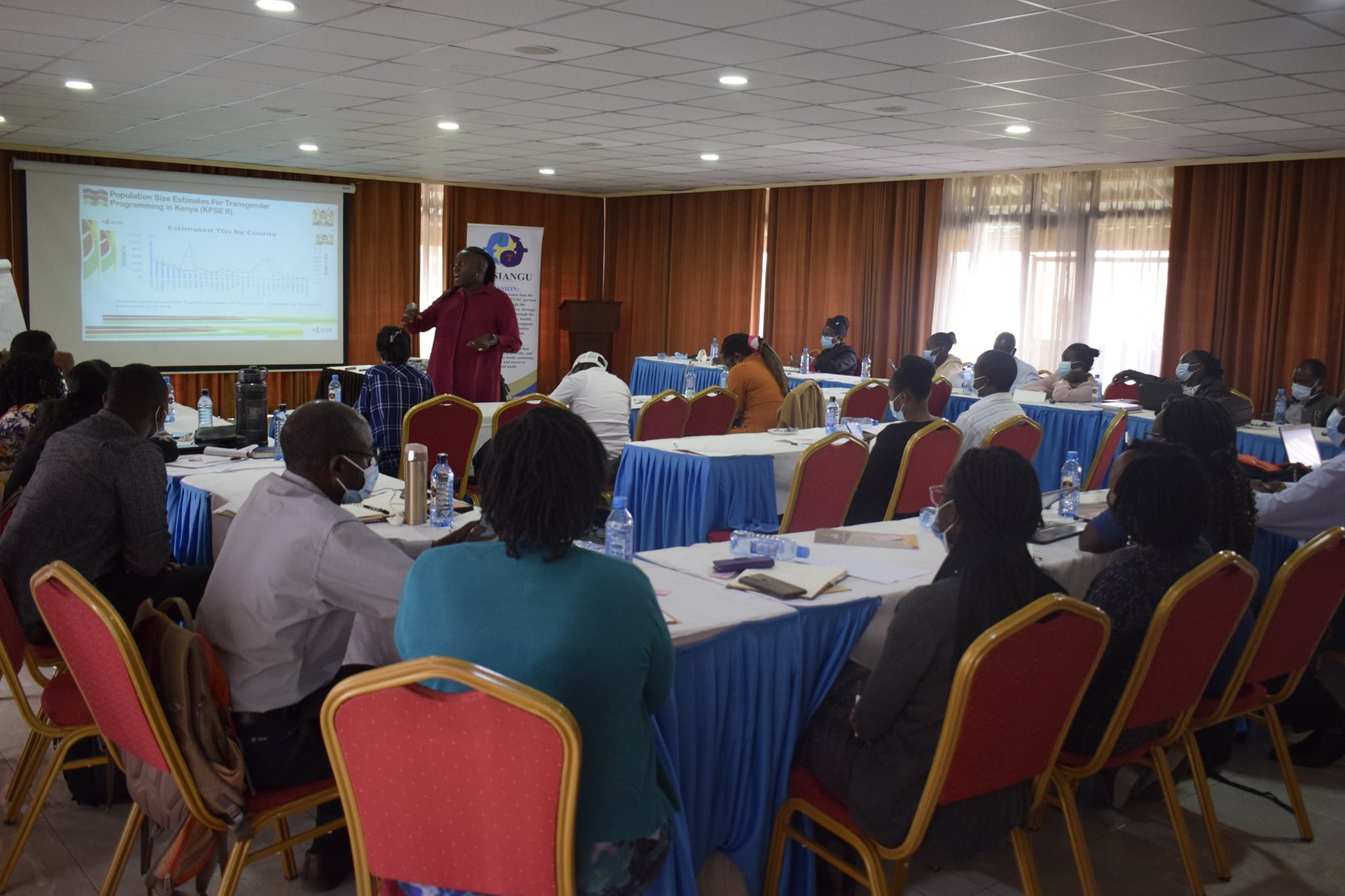Improving access to H.I.V prevention and treatment for Intersex, Transgender and Gender Non-Conforming (I.T.GNC) persons
Health data, including HIV prevalence data, are less robust for transgender people than for the general population due to challenges in sampling, lack of population size estimates and issues of stigma and discrimination. Research and surveillance data that include transgender people frequently fail to disaggregate the data by gender identity and involve sample sizes too small to make reasonable inferences. Transgender people remain severely underserved in the response to HIV, with only 39% of countries reporting in the National Commitment and Policy Instrument 2014 that their national AIDS strategies address transgender people.
Transgender people are often socially, economically, politically and legally marginalized. Discrimination against transgender people may stem from multiple forms of stigma relating to gender identity, gender expression and perceived sexual orientation. In most countries transgender people are either unable to obtain gender-appropriate legal identification or are required to undergo genital surgery to do so. Some transgender people do not desire surgery or long-term hormonal interventions to change their bodies, and this is a barrier to recognition and acceptance for some.
For people who desire such procedures, health insurance (either private or socialized) may not cover gender-affirming surgeries. Undergoing these surgeries may be costly, and a limited number of surgeons are trained to perform them. Absence of gender-congruent identity documents may limit access to a range of services, such as health-care and education, as well as employment. Most jurisdictions offer no effective and enforceable legal protections against such discrimination. Thus, stigma, discrimination and lack of legally authorized or gender appropriate identity documents exclude many transgender people from civic participation, limit economic opportunities and result in poverty and marginalization that increase HIV vulnerability.
Both internalized and experienced stigma compromise mental health and quality of life for transgender people . Stigma and discrimination have been associated with depression, suicidal thoughts and other mental health problems among transgender people.
Beyond the health sector, greater visibility of transgender people can increase public knowledge and acceptance. Anti-stigma campaigns that support the dignity and human rights of transgender people are needed.
To address these issues and barriers, Jinsiangu through the The Canada Fund for Local Initiatives (CFLI) a program directed at projects conceived and designed predominantly by local partners to support small-scale, high-impact projects in developing countries, convened a stakeholder engagement forum to sensitize duty bearers on the needs of the Intersex, Transgender & Gender non-conforming (I.T.GNC) community; and develop tools that will build the capacity of duty bearers to better deliver health services specific to the needs of the I.T.GNC populations across the regions of Uasin Gishu, Nairobi, Kisumu and Mombasa.
These training tools (e.g. checklists, referral forms, reporting guidelines), aim to accelerate access to HIV prevention and treatment services among the I.T.GNC community for duty bearers such as law enforcement, the judiciary, policy makers, health care providers, county government representatives that are crucial to the implementation of the newly developed Transgender Guidelines by the National AIDs and STI Control Programme (NASCOP) and the Ministry of Health.
Post credits: TRANSGENDER PEOPLE AND HIV - (W.H.O) POLICY BRIEF 2015



